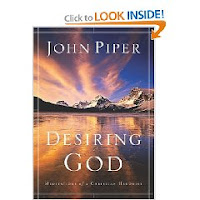How about under the New Covenant?
Are there any important parallels or distinctions to be drawn between the two?
Do these parallels or distinctions play out in any important ways practically or theologically?
I've been reading through Ezekiel for a little while now. It's one of the most difficult books in the Old Testament for me. There are some really mysterious scenes and some unique language. Plus, there are few (if any?) direct references to Ezekiel in the New Testament that shed any light on the book. However, there are a few sections in the book that are absolutely amazing - some of my favorite passages in the Old Testament. One is chapter 16, which is terrible and beautiful at the same time. Another amazing chapter is 34, where God says that he will send his servant to be the shepherd of his sheep.
God condemns the "shepherds of Israel" in verses 1-10, bringing against them charges of neglecting to provide and protect. He goes on to say that He himself will shepherd his people. In God's description of his own shepherding, we get an important glimpse into the Old C
 ovenant definition of the people of God. In verses 15 and 16, God says,
ovenant definition of the people of God. In verses 15 and 16, God says,"I myself will be the shepherd of my sheep, and I myself will make them lie down, declares the Lord God. I will seek the lost, and I will bring back the strayed, and I will bind up the injured, and I will strengthen the weak, and the fast and the strong I will destroy. I will feed them i justice."First notice that God identifies all of the sheep of whom he is speaking as being His. The sheep belong to him. They are his people. In verse 31 he says again, "And you are my sheep, human sheep of my pasture." Then, notice that God declares that he will destroy some of his sheep! Verse 2o is even more explicit:
"Behold, I , I myself will judge between the fat sheep and the lean sheep."As the passage continues, it's important to notice different ways that God begins to refer to his sheep. In verses 17, 19, and 21, God distinguishes between the sheep he will destroy and the one's whom he will save. Then all of a sudden in verse 22, he refers to "my flock" as the one's whom he will most certainly save. These are the one's over whom he will appoint his servant David as their shepherd. This, of course, is Jesus.
The simply conclusion that can be drawn from this text is that under the Old Covenant, not all of God's people (sheep) were truly God's people (God's flock). How does this compare with the New Testament people of God?
In John 10, Jesus declares himself to be "the good shepherd", directly and purposefully pointing to himself as the fulfillment of Ezekiel 34:23. However, Jesus' description of his relationship with the sheep is different from God's relationship with the sheep in Ezekiel 34. Whereas God says that some of the sheep will be judged and others will be saved, Jesus says in John 10:27-28,
"My sheep hear my voice, and I know them, and they follow me. I give them eternal life, and they will never perish, and no one will snatch them out of my hand."All of these sheep will be saved. In Ezekiel 34 there were 3 categories.
- Sheep who will be saved (Jews and those self identified as part of the Jewish Community)
- Sheep who will not be saved ((Jews and those self identified as part of the Jewish Community)
- Non-sheep, who will not be saved (Gentiles)
- Sheep (Jews and Gentiles)
- Non-sheep (Jews and Gentiles)
- Since the beginning of time, no one has ever been saved by their nationality. No Jew was every saved for being a Jew. Jews (sheep) who loved God were saved, Jews who did not love God were not saved. The revolution which Jesus brought was not to change the mode of salvation from ethnicity to faith.
- With regard to baptism - In the Old Testament, all of the sheep received the sign of the covenant, circumcision. However, under that covenant, though all were circumcised, some sheep were saved and some were not. Under the New Covenant, all of the sheep receive the sign as well. And as we have seen, all of the sheep are also saved. Only regenerate believers are sheep, and only regenerate believers are to receive the sign of the covenant. The "rule", to put it crudely, which transcends the Testaments/Covenants would be this: All of the sheep (God's people) are to receive the sign of the covenant.
- With regard to the local church - in the Old Testament, Israel, the community of God's people was composed of both saved and unsaved people. Under the New Covenant, the community of God's people is composed only of saved individuals. So, where there certainly will be a mixture of save and unsaved on any sunday morning in a local church, there must also be some distinction made as to who are the community of believers and who are not. This distinction is accomplished with church membership and sustained with church discipline.

























